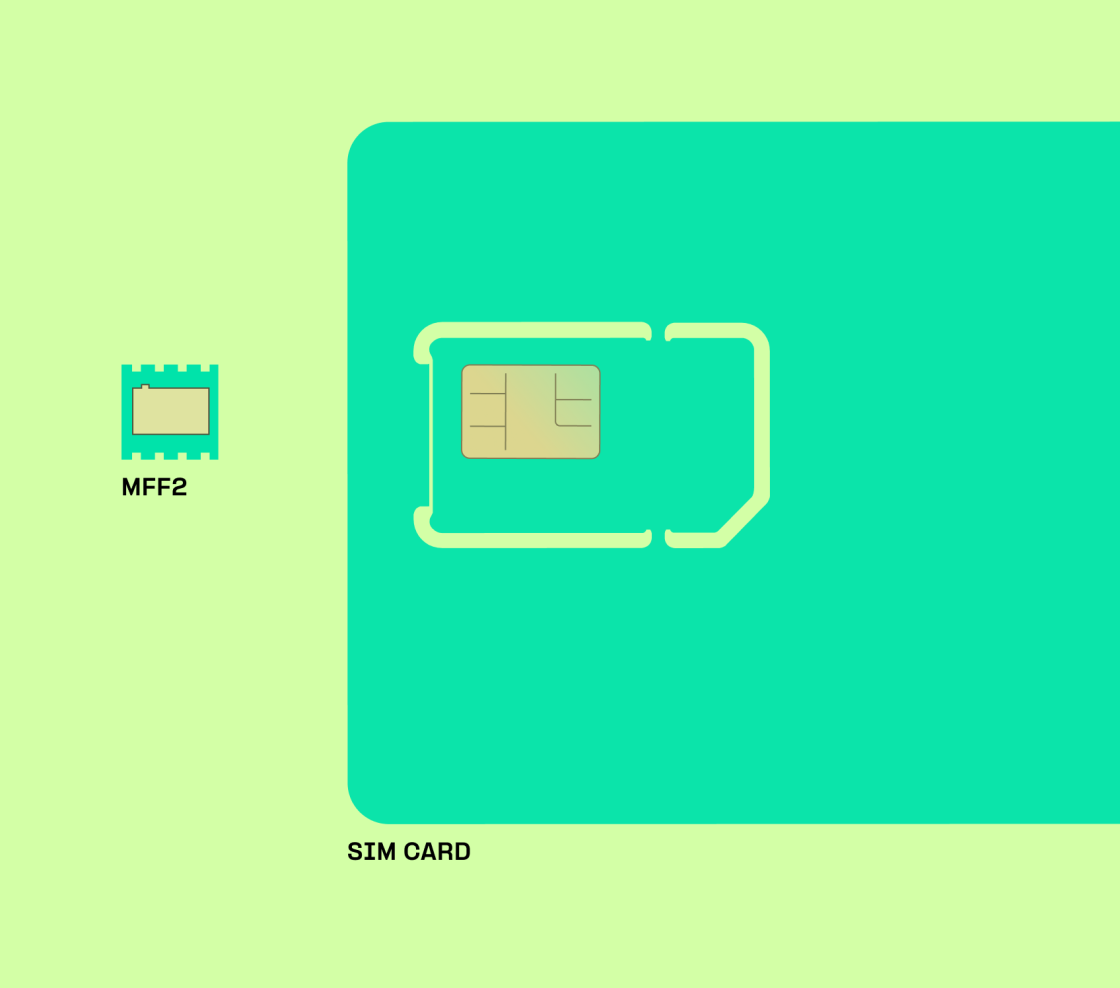Vodacom Iot Sim Card Ruggedized IoT SIM eSIM
Vodacom Iot Sim Card Ruggedized IoT SIM eSIM
Blog Article
Iot Sim Card Uk Single-Core Global eUICC IoT SIM
The landscape of manufacturing is evolving rapidly, driven primarily by technological advancements. Among these developments, IoT connectivity solutions for manufacturing automation stand out as pivotal parts reshaping how industries operate. The Internet of Things (IoT) integrates digital and bodily worlds, creating a community of interconnected gadgets that communicate seamlessly. This interconnectedness permits producers to optimize their processes and improve productivity.
Real-time data is a cornerstone of modern manufacturing. Through IoT connectivity options, machines and sensors generate knowledge that present insights into manufacturing processes. This immediate access to info empowers producers to make knowledgeable selections rapidly. For instance, if a machine is underperforming, operators can identify the issue and implement corrective actions directly, in the end minimizing downtime and enhancing throughput.
Predictive maintenance is another significant advantage of IoT connectivity options. By continuously monitoring equipment performance via numerous sensors, manufacturers can anticipate failures before they happen. This proactive strategy drastically reduces maintenance prices and improves the lifecycle of machinery. Instead of adhering to a reactive maintenance strategy, organizations can optimize their maintenance schedules based mostly on precise machine circumstances.
Free Iot Sim Card Narrowband IoT SIM cards
IoT technology also facilitates higher supply chain administration. With the mixing of sensors throughout the supply chain, producers gain enhanced visibility into inventory ranges and material flows. This improved visibility allows companies to optimize inventory management, guaranteeing that they have the necessary materials on hand without overstocking. Such efficiency translates to lowered prices and improved service ranges, that are essential for sustaining a aggressive edge.
Automation and robotics are more and more reliant on IoT connectivity options. Smart factories combine automated techniques powered by IoT to streamline manufacturing processes. Robotics geared up with IoT capabilities can talk with one another and adjust their actions based mostly on real-time data from the environment. This degree of synchronization allows the implementation of adaptive manufacturing systems that reply to fluctuations in demand rapidly and effectively. Iot Device With Sim Card.
Vodafone Iot Sim Card IoT Data SIM Card
Implementing IoT connectivity solutions requires a solid community infrastructure. Manufacturers should put money into dependable and safe communication networks capable of handling the immense data generated by interconnected devices. 5G expertise is emerging as a crucial enabler of IoT connectivity in manufacturing. Its fast velocity and low latency help the real-time functions which are important for data-driven decision-making.
Data analytics performs a significant function in harnessing the full potential of IoT connectivity options. With a wealth of data generated from related gadgets, producers must make use of advanced analytics instruments to extract actionable insights. Machine learning algorithms can identify patterns and anomalies in knowledge that is in all probability not apparent to human analysts. This data-driven method enhances operational efficiency by driving steady improvement across manufacturing processes.
Cybersecurity is an important consideration as manufacturers integrate IoT options into their operations. The connectivity that IoT brings increases the floor area for potential cyberattacks. Implementing sturdy safety measures to safeguard crucial manufacturing systems is paramount. This includes making certain that each one devices are secure, information is encrypted, and steady monitoring for threats is in place.
Worker security is significantly improved by way of IoT connectivity solutions. Wearable devices geared up with sensors can monitor the health and security of employees in real time. These smart wearables can alert personnel to hazardous situations, ensuring well timed intervention. Such measures not solely shield employees but in addition contribute to total productivity by iot sim card minimizing the chance of accidents.
4g Iot Sim Card IoT Data SIM Card Plans Features
The transition to smart manufacturing via IoT connectivity solutions also promotes sustainability. By optimizing processes, producers can significantly scale back waste and energy consumption. IoT devices assist track useful resource utilization, enabling businesses to establish areas where efficiency could be enhanced. These environmentally pleasant practices not solely benefit the planet but also can end in price savings over time.
The impact of IoT connectivity options on manufacturing extends beyond the operational realm. They allow enhanced buyer engagement by permitting producers to deliver personalized services and products. Through IoT-enabled devices, manufacturers can gather knowledge about buyer preferences, resulting in the creation of tailor-made choices that higher meet market calls for. This stage of engagement fosters buyer loyalty and strengthens brand status.
In conclusion, IoT connectivity options for manufacturing automation characterize a transformative force within the industry. By offering real-time insights, predicting tools failures, bettering supply chain management, and enhancing worker safety, these solutions redefine operational efficiency. As manufacturers continue to combine IoT technologies, the benefits extend past conventional metrics of productiveness and value. Embracing these improvements sets the groundwork for a more sustainable and responsive manufacturing environment that's geared up to meet the challenges of the longer term.
Hologram Iot Sim Card North America IoT Data Plan

- Enhanced real-time monitoring via IoT sensors permits manufacturers to track equipment efficiency and operational effectivity.
- Predictive maintenance is facilitated by IoT connectivity, lowering downtime and lengthening equipment lifespan through timely interventions.
- Seamless integration of IoT devices throughout production traces enhances data collection, resulting in improved decision-making processes.
- Wireless technologies such as LPWAN enable cost-effective communication over vast manufacturing facilities, minimizing installation complexity.
- Cloud-based IoT platforms present scalable options for data analytics and visualization, empowering producers to identify trends and optimize workflows.
- Enhanced asset tracking utilizing IoT devices ensures higher inventory administration and lowered losses due to misplacement or theft.
- Industry-specific IoT protocols, like MQTT and CoAP, guarantee environment friendly and safe knowledge transmission tailor-made to manufacturing needs.
- Advanced cybersecurity measures are crucial in IoT ecosystems to protect sensitive operational knowledge from potential threats and breaches.
- Integration of IoT with machine learning algorithms allows for autonomous adjustments and enhancements in manufacturing processes based mostly on historic data.
- Collaboration with IoT solution suppliers allows manufacturers to customise connectivity strategies that tackle their distinctive operational challenges.
What are IoT connectivity options for manufacturing automation?
IoT connectivity options enable seamless communication between machines, sensors, and gadgets inside a producing environment, facilitating data change, monitoring, and management to reinforce operational efficiency and decision-making.
How do IoT connectivity options enhance official statement manufacturing processes?
These solutions streamline workflows, scale back downtime, and optimize asset utilization by providing real-time data insights, enabling predictive maintenance, and enhancing supply chain visibility.
Nb Iot Sim Card IoT SIM Card Connectivity
What types of IoT connectivity technologies are commonly utilized in manufacturing?

Common technologies include Wi-Fi, Zigbee, LoRaWAN, cellular (4G/5G), and Bluetooth. Each technology offers distinctive advantages based mostly on range, data switch pace, and energy consumption fitted to different manufacturing wants.
How safe are IoT connectivity solutions for manufacturing?
Robust security measures, together with encryption, system authentication, and community segmentation, are essential to guard production environments from cyber threats, ensuring data integrity and operational continuity.
Sim Card For Iot Devices Fastest growing multi-network IoT SIM
Can IoT connectivity solutions be integrated with current manufacturing systems?
Yes, many IoT options are designed for interoperability, allowing integration with legacy techniques and gear. This enables producers to boost their capabilities with out replacing existing infrastructure.
Iot Sim Card International IoT M2M SIM Card
What are the cost implications of implementing IoT connectivity solutions?
Initial setup prices could differ, but long-term financial savings are sometimes realized by way of increased efficiency, lowered waste, and improved maintenance methods (Hologram Iot Sim Card). A detailed cost-benefit evaluation may help decide the monetary impression.
How can I choose the proper IoT connectivity resolution for my manufacturing facility?

Evaluate components such as scalability, reliability, ease of integration, and particular use case necessities. Consulting with industry specialists and conducting pilot projects can help in identifying one of the best fit for your wants.
Hologram Iot Sim Card IoT SIM Cards
What are the challenges in adopting IoT connectivity solutions for manufacturing?
Challenges may embrace cybersecurity considerations, interoperability issues, and the need for staff training. Addressing these obstacles through strategic planning and stakeholder involvement can facilitate successful adoption.
How does data collected via IoT connectivity affect decision-making in manufacturing?
Real-time data analytics allows producers to make knowledgeable decisions shortly, optimizing operational processes, bettering high quality control, and enabling proactive management of resources and potential points - Sim Card Iot Devices.
Report this page